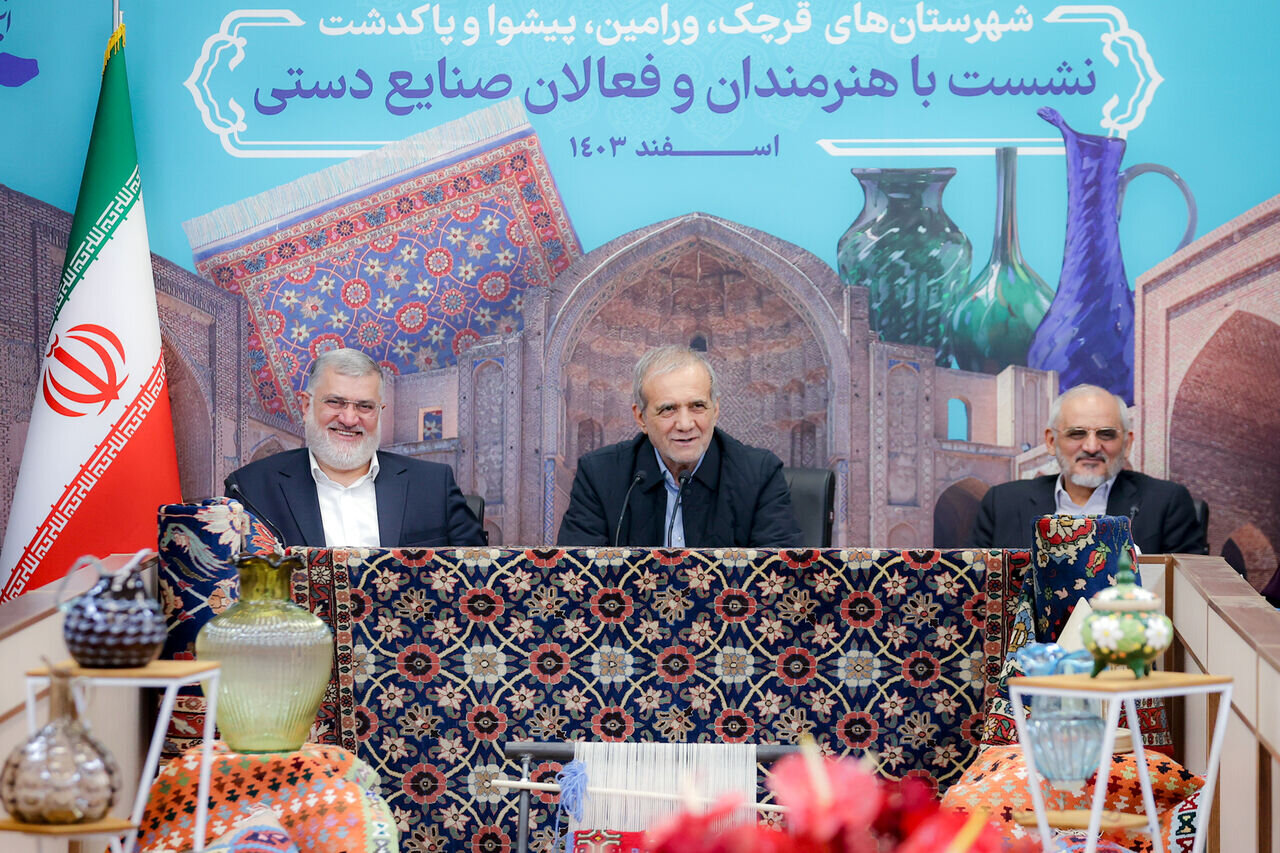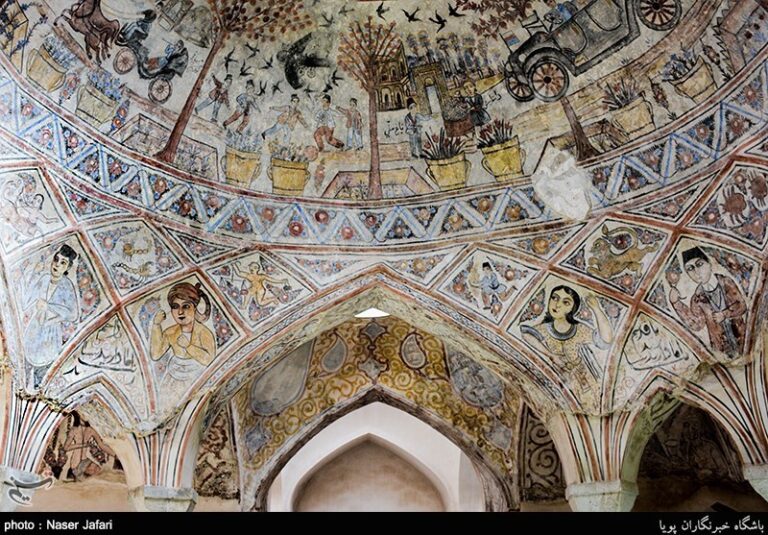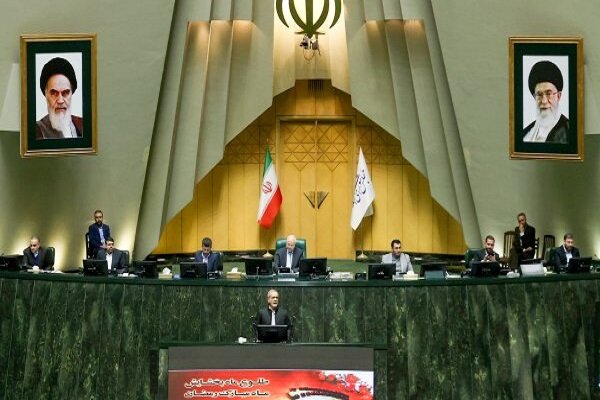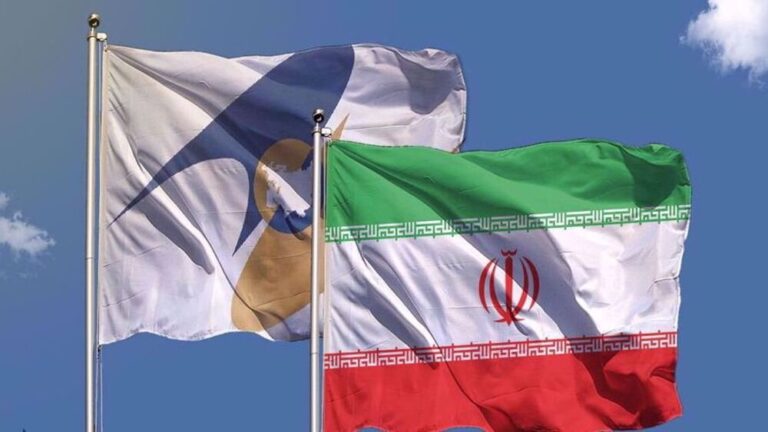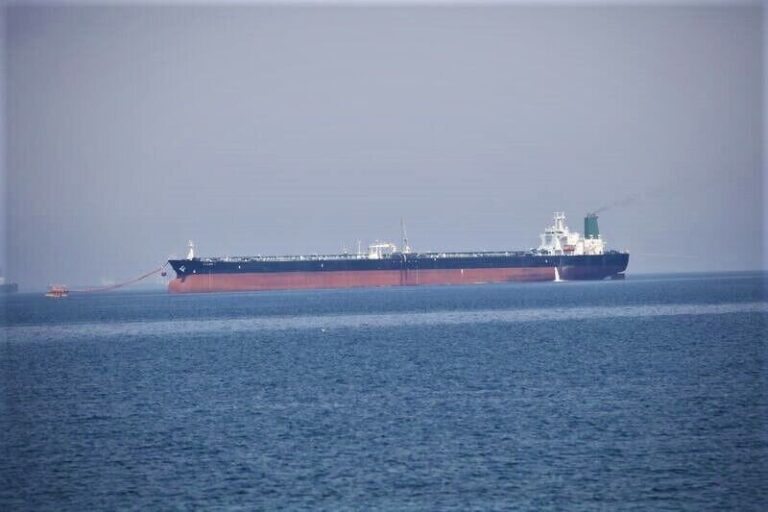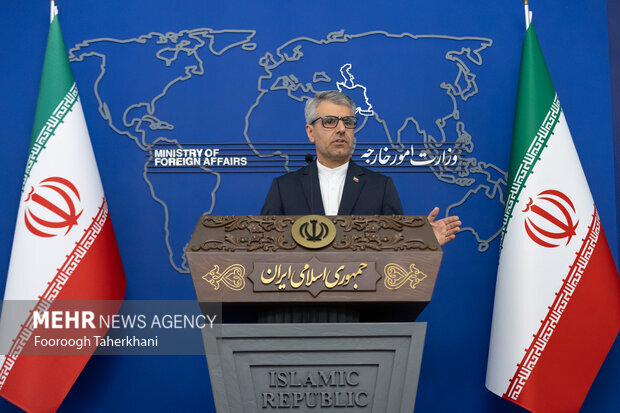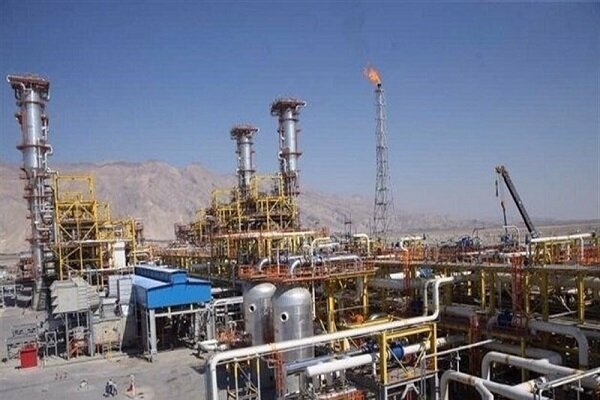Iran’s President Declares Enemies’ Schemes Against Nation Will Fail
The Iranian government emphasizes the importance of human capital in overcoming economic challenges, particularly in light of the ongoing sanctions imposed by the United States. In a recent meeting with artists and artisans from southeast Tehran province, Pezeshkian articulated the need for a shift in focus from natural resources to the capabilities of the nation’s people.
Pezeshkian remarked, “As long as we have the national assets of specialists, elites, producers, industrialists, and artists, we will not be worried about oil sanctions.” This statement underscores the resilience of Iran’s human resources amid external pressures.
He further elaborated on the challenges faced when a nation loses its human assets, stating, “We face problems when we lose our assets. Any nation dependent on its material resources will eventually face ruin; therefore, we must focus on human capital—producers, artists, traders, and scientists.” This highlights the necessity of nurturing talent and innovation within the country.
In his address, Pezeshkian stressed the importance of supporting local talent, adding, “If we support them and do not hinder their activities, threats and sanctions will be ineffective.” This sentiment reflects a broader strategy aimed at bolstering Iran’s economy through internal capabilities rather than external dependencies.
Furthermore, Pezeshkian noted the repercussions of Iran’s reliance on oil and gas, stating, “The United States is pressuring Iran since we made ourselves reliant on oil and gas.” This dependency has made the nation vulnerable to sanctions that target its natural resources.
He emphasized the need for a paradigm shift, encouraging creativity and production: “As long as we depend on the resources beneath our feet, if those resources are taken away or their sale is blocked, we will be in trouble. But if we create art and produce, no power can stop us.” This assertion highlights the government’s commitment to fostering an environment conducive to artistic and industrial growth.
Pezeshkian concluded with an empowering message about the potential of the Iranian people: “If we believe that we can solve problems with our own hands, intelligence, and abilities, no power can bring us to our knees.” This statement serves as a call to action for the citizens of Iran to leverage their skills and creativity to navigate the current challenges.
Additionally, he pointed out, “We are sitting on treasure in Iran—this land is full of treasure. It is not befitting for us to be in the state we are in now.” This metaphorical treasure represents the untapped potential and resources available to the nation.
Pezeshkian advocated for unity and a renewed vision for the future, stating, “To overcome these conditions, we need a fresh outlook, unity, and renewed support. We must envision new possibilities for ourselves, and only in this way can we live together with dignity and pride.” This vision places emphasis on collective effort and innovative thinking as essential elements for national progress.
- Highlighting Human Capital: Pezeshkian advocates for focusing on specialists, elites, and artists.
- Challenges of Dependency: Discusses the dangers of relying on oil and gas resources.
- Support for Local Talent: Emphasizes the need for governmental support for producers and artists.
- Empowerment through Innovation: Encourages innovation and creativity as a means to overcome sanctions.
- Call for Unity: Stresses the importance of collective effort and a fresh outlook.
The backdrop of these discussions is the escalating tensions between Iran and the United States, particularly after former President Donald Trump withdrew from the Joint Comprehensive Plan of Action (JCPOA) in 2018. This agreement was designed to limit Iran’s nuclear activities in exchange for relief from economic sanctions.
Following the U.S. withdrawal, the Trump administration initiated a “maximum pressure” campaign, which severely impacted Iran’s economy by targeting its oil exports, banking sector, and other critical industries. Many American officials acknowledged that the intent of this campaign was to weaken Iran both economically and politically.
As Iran navigates these challenges, the emphasis on human capital and local talent becomes increasingly crucial. By fostering a culture of innovation and collaboration, the Iranian government aims to build resilience against external pressures and create a sustainable path forward for the nation.
In conclusion, the remarks made by Pezeshkian serve not only as a rallying cry for the Iranian people but also as a strategic framework for addressing the economic challenges posed by international sanctions. By prioritizing human resources over material dependencies, Iran can work towards a more self-sufficient and empowered future.
